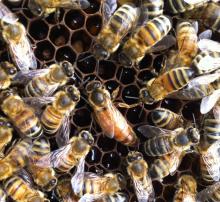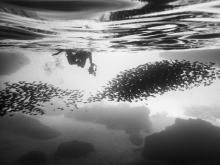News
-
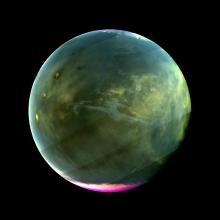
UBC researchers establish new timeline for ancient magnetic field on Mars
May 1, 2020
Mars had a global magnetic field much earlier—and much later—in the planet's history than scientists have previously known. A planet’s global magnetic field arises from what scientists call a dynamo: a flow of molten metal within the planet’s core that produces an… read more
-
Honey bees could help monitor fertility loss in insects due to climate change
April 27, 2020
New research from the University of British Columbia and North Carolina State University could help scientists track how climate change is impacting the birds and the bees… of honey bees. Heat can kill sperm cells across the animal kingdom, yet there are few ways to monitor the impact of… read more
-
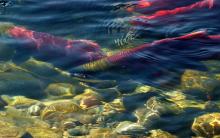
Return of ‘the Blob’ could intensify climate change impacts on Northeast Pacific fisheries
April 21, 2020
A large marine heatwave would double the rate of the climate change impacts on fisheries species in the northeast Pacific by 2050, says a recently released study by researchers from the University of British Columbia and University of Bern. In 2013, a large marine heatwave, nicknamed the &lsquo… read more
-
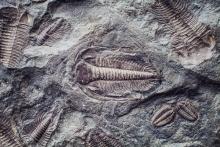
Research challenges traditional methods used to analyze trees of life
April 15, 2020
Long-used approaches for reconstructing trees of life—the branches of extinction or adaptation taken by species over evolutionary time scales—are deeply flawed, according to new research in Nature. While paleontological evidence provides insights on how and why patterns of… read more
-

Geologists find lost fragment of ancient continent in Canada’s North
March 19, 2020
Sifting through diamond exploration samples from Baffin Island, Canadian scientists have identified a new remnant of the North Atlantic craton—an ancient part of Earth's continental crust. A chance discovery by geologists poring over diamond exploration samples has led to a major scientific… read more
-
UBC biologist receives $1.9 million Moore Foundation grant
March 11, 2020
An award from the Gordon and Betty Moore Foundation will enable UBC biologist Patrick Keeling to conduct high-risk, high-reward research into how symbiotic microorganisms evolve, and how they serve critical roles in coral reef ecosystems. The $1.9 million grant is part of the Foundation's… read more
-
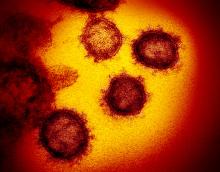
Researchers explore mobile health apps, anti-virals to combat COVID-19
March 6, 2020
UBC researchers have received federal funding to help with the global COVID-19 response, including exploring the potential of mobile health apps and new anti-viral drug leads. “The outbreak of COVID-19 represents a significant issue for public health in Canada and around the world," says… read more
-
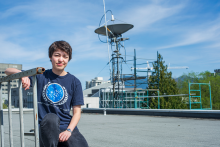
UBC student discovers 17 new planets, including potentially habitable, Earth-sized world
February 28, 2020
UBC astronomy student Michelle Kunimoto has discovered 17 new planets, including a potentially habitable, Earth-sized world, by combing through data gathered by NASA’s Kepler mission. Over its original four-year mission, the Kepler satellite looked for planets, especially those that lie in… read more
-

Magnetic field at Martian surface ten times stronger than expected
February 24, 2020
New data gleaned from the magnetic sensor aboard NASA’s InSight spacecraft is offering an unprecedented close-up of magnetic fields on Mars. In a study published today in Nature Geosciences, scientists reveal that the magnetic field at the InSight landing site is ten times stronger than… read more
-
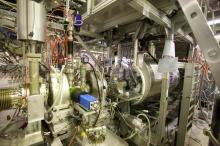
Key part of 70-year-old quantum theory holds up in antimatter
February 19, 2020
A quantum theory based on experiments that shook up the world of conventional physics 70 years ago has just passed a major test—this time in antimatter. In 1947, physicists led by Willis Lamb observed an incredibly small shift in the energy levels of the hydrogen atom as the atom’s… read more
